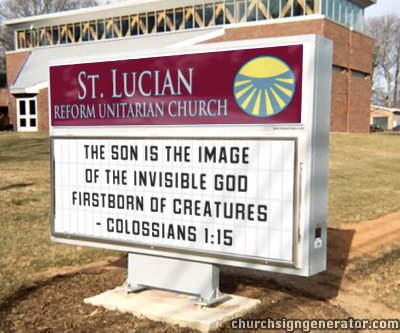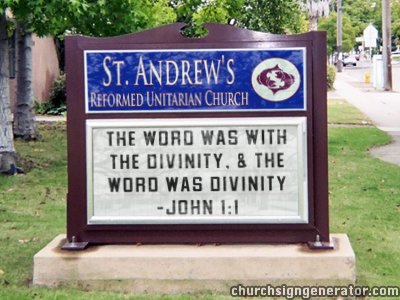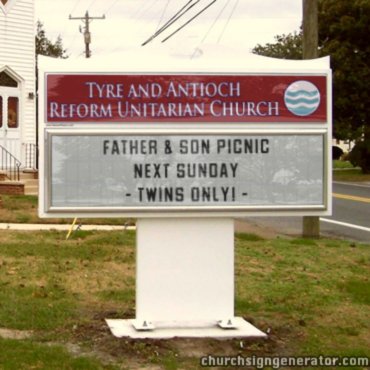Declaration Thursday
[originally posted 03 July 2008]
AUR celebrates Four Great Thursdays, two for the universal expression of virtue and two for the specifically American expression of virtue.
On Garden Thursday, Jesus celebrated a feast with his disciples and, later in the Garden of Gethsemane, recognized the contingent nature of human life by accepting his fate: “If it be Your will, take this cup from me; nevertheless, Your will be done.” This feast day was followed by the violence of the Passion. AUR celebrates this Thursday as a Feast Day and a day of commitment to the contingent condition of the individual life.
On Thanksgiving in 1621, two worlds met in Massachusetts: the Old World represented by the Pilgrims and the New World represented by the Wampanoag. Rather than one group dominating the other in oligarchy, they met as brothers and sisters. It was a moment of human community that, unfortunately, was followed by violence. AUR celebrates this Harvest Thursday as a Feast Day and a day of commitment to the contingent place of each social group.
On Ascension Thursday, 11 disciples gathered to witness Jesus rise up to Heaven. Here they received the Great Commission to spread the Christian message to all humanity. AUR observes this Thursday as a reminder of our duty to spread the message of personal liberation.
On a Thursday in Philadelphia, 1776, 11 colonies (New York abstained) sided with the Massachusetts delegation to declare to the world the right of human beings to rise up against oligarchy. Charged with writing a document announcing the reasons for the colonies’ rebellion, Virginia delegate Thomas Jefferson went beyond this and declared rights for all humanity. AUR observes this Declaration Thursday, the first Thursday in July, as a reminder of our duty to spread the message of social liberation.
HAPPY DECLARATION THURSDAY!


 The
The 
 Today is the First of the 12 Days of Commission, which is the third dozenal of the Easter Season. The 5th Day of Commission, which is the 6th Thursday after Easter, is Agape Thursday.
Today is the First of the 12 Days of Commission, which is the third dozenal of the Easter Season. The 5th Day of Commission, which is the 6th Thursday after Easter, is Agape Thursday. Today is Loyal Thursday, the 4th Thursday after Easter and the Ultimate of the 12 Days of Trust, which is the second dozenal of the Ascension Season.
Today is Loyal Thursday, the 4th Thursday after Easter and the Ultimate of the 12 Days of Trust, which is the second dozenal of the Ascension Season.